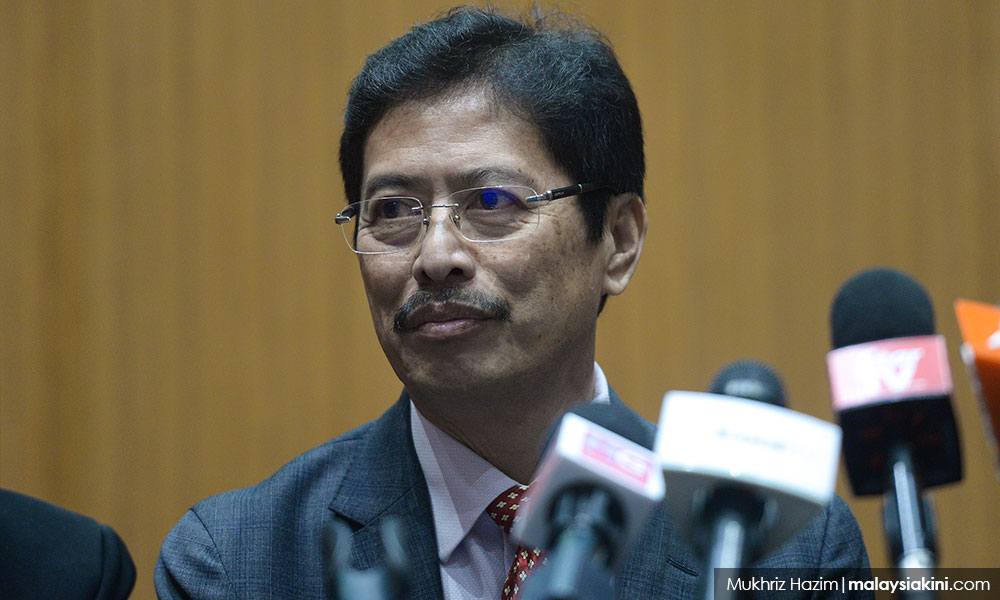Prime Minister Ismail Sabri Yaakob has tabled the 12th Malaysia Plan (12MP) in the Dewan Rakyat announcing that the government will allocate RM400 billion for existing and new development projects.
Public projects can be very costly as a big sum of money is being spent by the government on these megaprojects.
This allows for those involved in awarding the projects to take the opportunity to abuse their power and to commit corrupt practices.
The situation is made worse where some mega projects are awarded through direct negotiations and limited tenders to their cronies or certain companies.
Even in the open tender, it should not be tainted by corruption and bid-rigging.
According to the World Bank, it is estimated that 20-30 percent of the budget for public contracts is wasted.
This finding matches with what Ambrin Buang, the former auditor-general predicted, that up to 30 percent of Malaysia's public projects value was lost to mismanagement and corruption.
Consider the amount of savings the government would have obtained if it pays 30 percent less for goods and services that the contractors and vendors will provide out of a total RM400 billion in the 12MP.
If left unchecked, the present crisis may develop into a worst-case scenario and one can expect another full-blown corruption scandal.
MACC chief Azam Baki said corruption cases resulting in leakages and wastage of government procurement involving civil servants - the top leadership - are seen to be increasingly critical and topped the significant financial loss list.
Approximately 50 percent of such cases involve government agencies, who are in power in deciding a matter, due to abuse of power and unlawful manipulations of the procurement process and fraud.
When there is a leakage of government procurement, investigations show there is an element of corruption that causes a certain value of government procurement to rise.

Ambrin has said, simply giving oral warnings to erring civil servants is not sufficient and ineffective.
Under the current laws, civil servants who are off the hook for power abuse and corruption due to insufficient evidence or other technicalities merely face internal or disciplinary action.
The MACC is of the opinion that without a specific law to address such misconduct, it may become a loophole for the offenders, who may simply be let off with disciplinary action.
In order to overcome this problem, MACC is pushing for a law known as the Misconduct for Public Service Act to punish civil servants who cause high losses in public funds through negligent and unethical practices in their respective government departments with criminal charges.
In Hong Kong, this common law carries the maximum penalty of seven years’ imprisonment.
The law would act as a powerful deterrent and key weapon to those tempted to abuse their powers.
It is to send out a strong message to wayward public servants that they cannot escape after causing substantial losses to public coffers while discharging their duties, even after they are cleared for offences of corruption and abuse of power.
Some suggested that the definition of Misconduct for Public Service should include ministers and also politicians. The ministers are also responsible for the final decision in awarding the ministry’s contracts.
The National Audit Department should be given the power to conduct spot checks on big government projects when there is any sign of red flags that the company which has been awarded is engaged in false claims or fraudulent activities.
This, apart from giving assurance that the projects are being monitored, will also act as a preventive measure that can reduce leakages, losses, or low-quality constructions.
Delayed, sick projects
When there is a project delay, the project cost will increase, and it will be the taxpayer's money that will be used to rescue the project with additional cost.
As such, when contracts are awarded there should be a mechanism of continuous monitoring to ensure the projects are progressing according to the timeline agreed upon in the contract.
“Sick projects” or failed-to-complete projects that are mostly awarded by direct negotiation instead of being based on technical knowhow not only undermines the government's and people's aspirations but also cause project costs to increase.
Contracts should be awarded to contractors with evidence of reliability, capability, responsibility, and a good track record both technically and financially.
As a matter of good governance, a proper checking on the pricing and due diligence on the contractors should be conducted before awarding the contracts since nowadays getting information via the internet is easily, especially on the market price.
Modernising government payments and collections through digitisation can help policymakers achieve these goals. The Ministry of Finance should introduce a “flying squad team” to check the completed projects before payments are approved.
Ideally, the public budget process should allocate public resources in a strategic, transparent, accountable, fair, and democratic way. Unfortunately, this ideal is rarely met.
In the absence of a culture of integrity, no one will bear the responsibility or feel embarrassed by their wrongdoings while corruption would get further aggravated.
A point to ponder is, after 11 Malaysia Plans covering 55 years, is it still necessary to build more physical projects?
We don’t need more costly mega projects that entail more tenders and procurements where unethical public servants tend to abuse powers or manipulate via direct negotiations and cronyism. - Mkini
AKHBAR SATAR is a former president of Transparency International Malaysia.
The views expressed here are those of the author/contributor and do not necessarily represent the views of MMKtT.




No comments:
Post a Comment
Note: Only a member of this blog may post a comment.